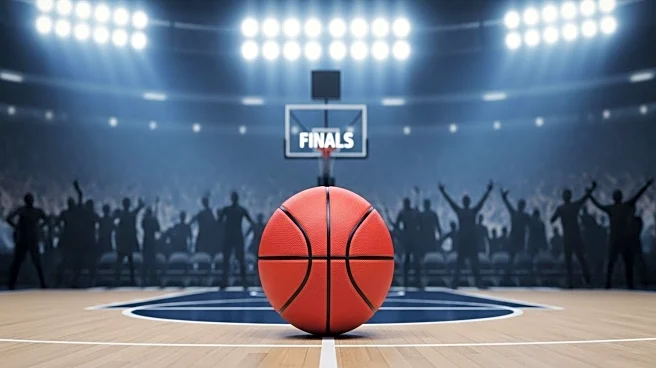What's Happening?
The WNBA Finals are set to begin with the Las Vegas Aces facing the Phoenix Mercury. However, the spotlight has shifted due to a controversy sparked by Napheesa Collier, a star player for the Minnesota Lynx. Collier publicly criticized the league's leadership, particularly targeting Commissioner Cathy Engelbert, over issues such as player pay and the league's response to player concerns. Collier's remarks have drawn significant attention because of her status as a respected player and her direct criticism of the league's handling of player compensation and engagement. The controversy has overshadowed the finals, with players from both teams expressing support for Collier's stance.
Why It's Important?
This controversy highlights ongoing tensions within the WNBA regarding player compensation and league management. The league has seen increased attention and revenue, yet player salaries remain a contentious issue. Collier's criticism underscores a broader dissatisfaction among players, which could influence future negotiations and the league's public image. The support from other players suggests a unified front that could pressure the league to address these concerns more seriously. The outcome of this situation could have significant implications for the league's future, particularly as the players' union contract is set to expire soon, potentially leading to a major negotiation battle.
What's Next?
As the finals proceed, the focus will likely remain on both the games and the ongoing controversy. The players' union contract expiration later this month could lead to intensified negotiations, with player compensation and league management practices at the forefront. The league's response to these criticisms and the outcome of the finals could shape the WNBA's trajectory in terms of player relations and public perception. Stakeholders, including players, league officials, and fans, will be closely watching how these issues are addressed in the coming weeks.
Beyond the Headlines
The controversy raises questions about the ethical responsibilities of sports leagues to their players, particularly in terms of fair compensation and representation. It also highlights the cultural shift towards greater player empowerment and advocacy within professional sports. The situation could lead to long-term changes in how the WNBA and other leagues engage with their athletes, potentially setting a precedent for future player-league dynamics.









